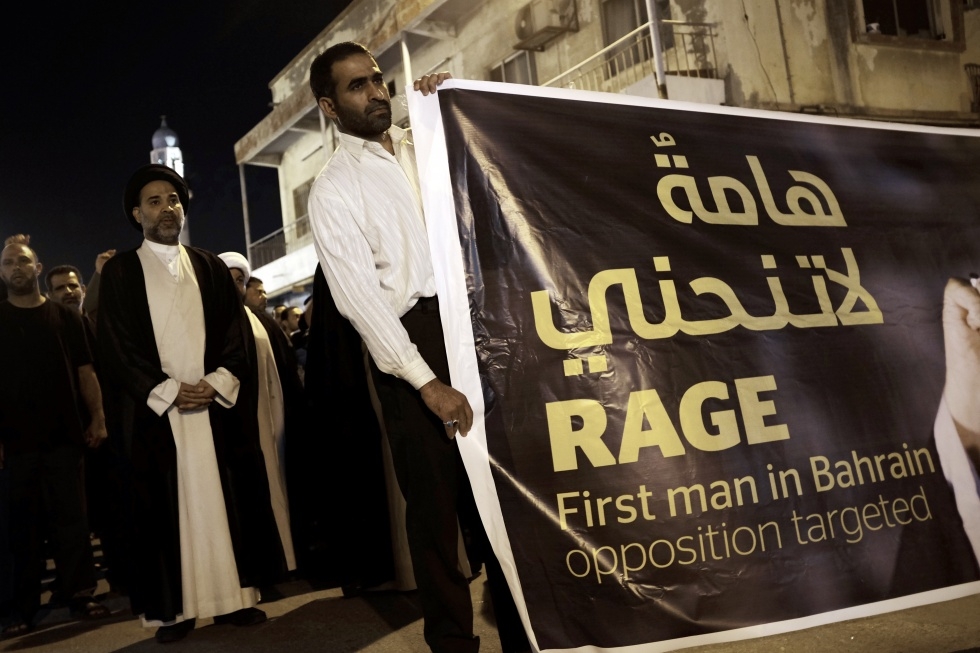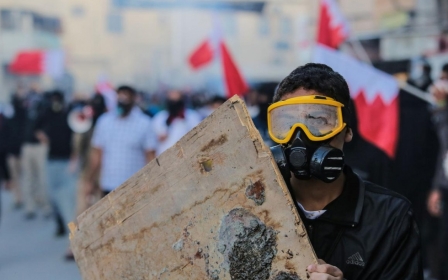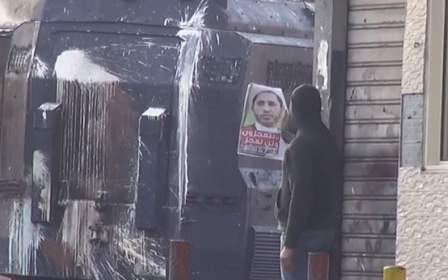Bahrain’s manufactured instability

The uprising in Bahrain will see its fourth anniversary on 14 February 2015. Hundreds of thousands of people have taken to the streets over the course of the past four years to demand democratic reforms from the al-Khalifa ruling family.
And while those demands are still to be met, and repression is stronger than ever, protesters remain steadfast in their commitment to see change in the tiny Gulf state. This is despite a strategy from the government that appears aimed at pushing the uprising to take a violent turn.
Weeks shy of the fourth anniversary, the government utilized a 2014 law equating non-violent dissent with violent extremism to denaturalize 72 persons on terrorism-related charges. While some of the denaturalized persons have been accused of association with the Islamic State (IS) group, known by the acronym Daesh in Arabic, most of those stripped of their nationality were non-violent activists. By punishing those who speak out non-violently to life sentences alongside those who plot and carry out bombings, Bahrain has effectively obliterated the deterrent for violence in protest.
Both the action and outcome appear to be intentional. The government has been warned on multiple occasions that increased violence against protesters combined with harsher penalties against peaceful activists may lead to home-brewed extremism. Yet it continues to crack down on peaceful demonstrations and doles out harsh sentences for human rights defenders, furthering its progress down the path of violence.
A semi-violent opposition would play into the government’s hand. Over the past few years, as conscientious organizations and countries have criticized Bahrain’s human rights record, the government has struggled to legitimize its abuses. Marginalized violent actors are easier for Bahrain to dismiss and delegitimize than unarmed protests, but a teenager is more likely to join a march and carry a sign than he is to join a war and carry a gun. By obliterating the space for peaceful dissent and civil society, the government simultaneously weakens international criticism and delegitimizes calls for reform. King Hamad may be willing to suffer the occasional violent attack in order to maintain the status quo.
This strategy of manufacturing instability is short-sighted. While the government believes it can asphyxiate reform until it burns out, history confirms that prolonged political repression results in longer, more violent conflicts. Guatemala, Colombia, and the Congo provide case studies into the most violent of these conflicts, but one need not go beyond the Middle East and North Africa region to see the effects that prolonged and ever-escalating violence can have on a country. See Libya, Syria, and most recently Yemen. These countries serve as a warning that as Bahrain’s repressive policies start affecting more people, the government risks increasing mobilization from the opposition while further alienating a Sunni base that grows weary of supporting a repressive monarchy.
There is little doubt that Bahrain will remain a critical strategic ally to the West. The US has committed to a $580mn expansion of its naval base, and the UK recently announced its own development of an established military presence in the country. With their attention focused on battling Daesh, Western countries appear to be employing the “stability over democracy” approach in the Gulf, ignoring Bahraini policies that continue to destabilize the domestic population through human rights abuses. If the West wishes to avoid the next cycle of oppression leading to radicalization, it must push Bahrain to tackle the issue of extremism through political representation and the improvement of human rights.
As Bahrain approaches the four year anniversary of the 14 February uprising, opposition groups can take solace in the silver lining: the Bahraini government’s zero-tolerance attitude towards dissent is proof that it fears the opposition’s capacity to enact real and substantial reform. If activists continue to unequivocally oppose the use of violence and resist government attempts to provoke and radicalise the struggle, a reformed and peaceful Bahrain is a very real possibility. For its part, the West must augment concern for short-term stability with policies promoting long-term peace. If Bahrain’s Western allies are truly concerned about stabilizing the Gulf and stopping future Daesh-type movements before they start, they need to put their full attention and pressure on stopping repressive policies in the Gulf. They can start with Bahrain.
- Husain Abdulla, originally from Bahrain, is the founder and executive director of Americans for Democracy and Human Rights in Bahrain. Husain also works closely with members of the Bahraini-American community to ensure that their voices are heard by US government officials and the broader American public.
The views expressed in this article belong to the author and do not necessarily reflect the editorial policy of Middle East Eye.
Photo credit: Bahrainis attend a protest against the arrest of the head of the banned Shiite opposition movement Al-Wefaq, Sheikh Ali Salman on December 31, 2014 in Sanabis, west of Manama (AFP)
New MEE newsletter: Jerusalem Dispatch
Sign up to get the latest insights and analysis on Israel-Palestine, alongside Turkey Unpacked and other MEE newsletters
Middle East Eye delivers independent and unrivalled coverage and analysis of the Middle East, North Africa and beyond. To learn more about republishing this content and the associated fees, please fill out this form. More about MEE can be found here.





